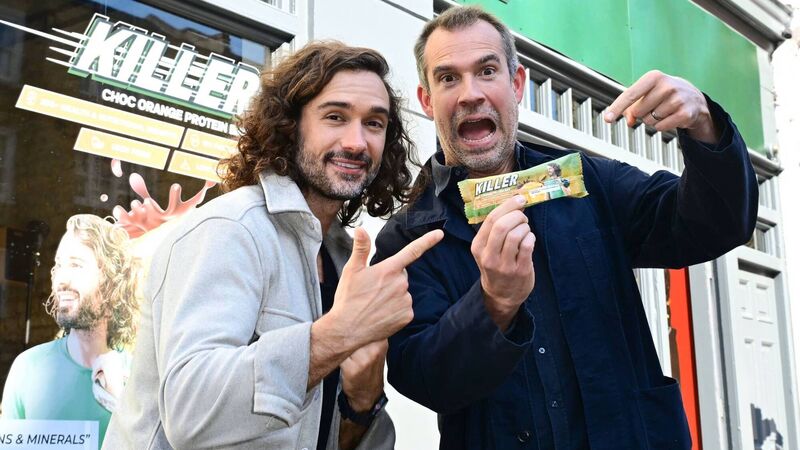No, Joe Wicks, reading lists of ingredients will not solve our health problems

Joe Wicks and Chris van Tulleken face a decision about whether they can stomach feeding people the ‘killer’ bar they know to be harmful. Picture: Anthony Harvey/Shutterstock/Channel 4
Joe Wicks, the UK’s “loveable” fitness coach, has just released his new 'Killer' protein bar as a way of promoting his new documentary all about the dangers of ultra-processed foods, or UPFs, sensibly titled . I, along with many others, watched it on Monday night.
His Killer bar is designed to be, according to Wicks, “the most dangerous health bar in Britain”. He even goes as far as to say excessive consumption of some of the ingredients in the bar can lead to things like diarrhoea, cancer, stroke and even death. Sounds pretty serious right?













